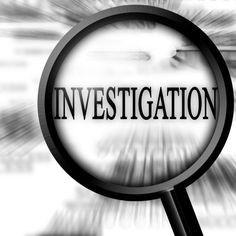- عربي
- 中文
- English
- Français
- Русский
- Español
JIU/REP/2020/1 Review of the state of the investigation function: progress made in the United Nations system organizations in strengthening the investigation function
The review found that the investigation function has considerably matured over the past two decades. Nearly all United Nations system organizations have established internal investigation capacity, mostly located in the internal oversight offices. The importance attached to individual and organizational integrity and accountability; “zero tolerance” for misconduct; the necessity of adequate organizational measures against fraud, corruption and harassment, especially sexual harassment and sexual exploitation and abuse; and the vast increase in operational activities of United Nations system organizations require strong oversight mechanisms, including an effective investigation function.
Despite progress made, the review found that the investigation function continues to face significant problems, notably a widespread and unacceptable degree of fragmentation of the responsibility for investigations in many organizations, where investigations and investigation-related work are carried out by various other offices. This fragmentation constitutes a serious impediment to independence, impartiality and objectivity of investigations and has negative consequences on perceptions and trust in the function. Furthermore, there is still an insufficient degree of structural autonomy and operational independence of the investigation function, hence inadequate safeguards against undue interference. Independence is decisive for the effective delivery of the investigation function mandate and for the impartial, objective and professional discharge of investigation responsibilities. The review also found an evolving environment for investigations, with, among others, a significant increase in the number of complaints and investigation caseloads while capacity and resources of the investigation function have not kept pace with these rising demands in most organizations.
Moreover the investigation function is faced with new demands and challenges, including the need to retaining trust of staff and personnel but equally of Member States, partners and other stakeholders in the ability to address misconduct effectively, and to uphold a culture of accountability and integrity; as well as conducting complex investigations such as into complaints of sexual harassment and sexual exploitation and abuse.
To address identified deficits and shortcomings, the review highlights, among others, the need to strengthen the independence and effectiveness of the investigation function, inter alia through consolidating all investigations and related activities in the internal oversight offices; ensuring unrestricted access of the heads of internal oversight offices to legislative bodies and respective oversight committees; establishing formal procedures for the investigation of allegations against executive heads; introducing provisions that make the appointment and dismissal of the heads of internal oversight offices subject to consultation and approval of the legislative bodies including term limits and post-employment restrictions; and reviewing the capacity and adequacy of resources of the investigation function.
The review contains 10 formal recommendations for action. Of these formal recommendations, nine are addressed to the legislative bodies. The review’s findings will be presented to the General Assembly, following the receipt of the comments on the report from the Chief Executives Board for Coordination and to the legislative bodies of JIU participating organizations.
Access the full report here.


